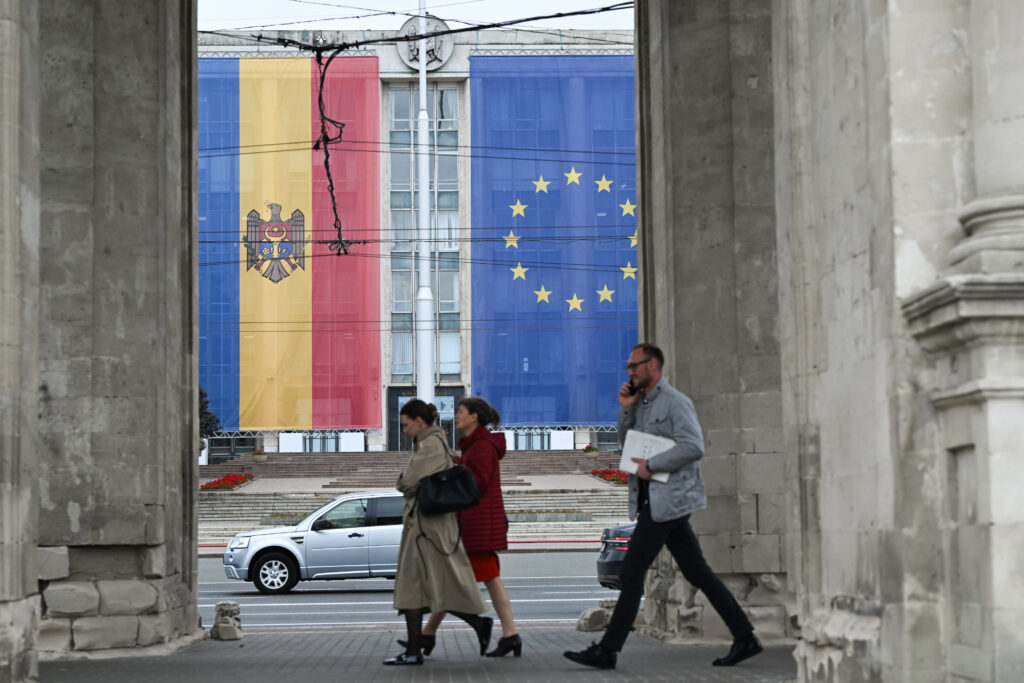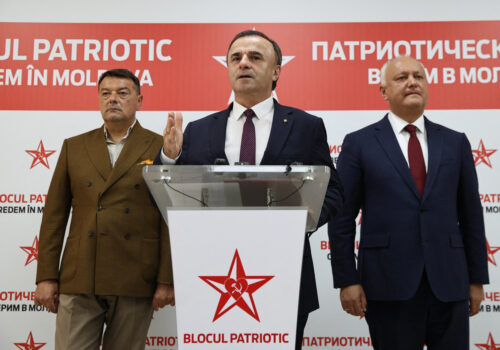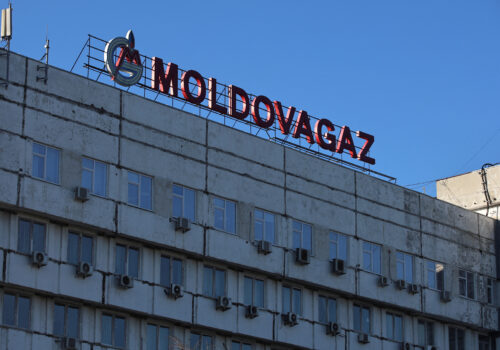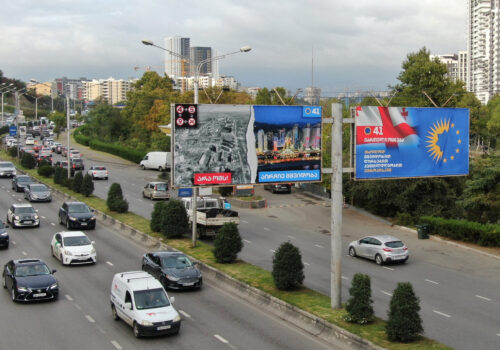CHIȘINĂU—As this frontline country approaches a pivotal and closely contested election, I picked up a sense of cautious optimism here last week. Moldovans who see their future in Europe believe they will prevail, but Russia is deploying novel tactics to try to steer that future in Moscow’s direction. Washington would do well to engage in the fight.
I spent three days in Chișinău for a Board of Directors meeting of the Ukraine-Moldova American Enterprise Fund* and for meetings with senior Moldovan officials. The principal topic for discussion was Moldova’s September 28 parliamentary elections. The stakes are high because the reformist party of President Maia Sandu, the Party of Action and Solidarity (PAS), risks losing control of the parliament, which could put in jeopardy her goal of Moldova joining the European Union (EU) this decade. Moldova is currently in accession talks with the EU regarding the deep reforms required to join the organization. If parties less committed to reform take control of the parliament, then it could be difficult, if not impossible, to pass the legislation needed to secure EU membership.
That is why senior European officials such as French President Emmanuel Macron, German Chancellor Friedrich Merz, and Polish Prime Minister Donald Tusk visited Chișinău in late August. They wanted to underscore for Moldovan voters that if they truly want the benefits of EU membership, then they need a parliament committed to reform. And that is why the Kremlin is working to ensure that PAS does not achieve a majority in the upcoming election.
To keep PAS from a majority, Moscow is backing two horses in this race. One is the Patriotic Electoral Bloc, an uneasy alliance of communists and socialists cobbled together by and largely loyal to the Kremlin. The second is the National Alternative Movement, which claims to favor joining the EU and is headed by the mayor of Chișinău, Ion Ceban. The actual commitment of the National Alternative Movement to EU membership is, however, far from clear. The Kremlin also backs this party in order to hive off the support of pro-EU Moldovans (a majority of the population) from PAS. Moscow’s support for these two parties is likely based on the calculation that while PAS may win a plurality of votes on September 28, the two largest opposition groups will together constitute a majority, making it unlikely they will work with PAS.
Old ways and new ways
Moscow’s interference in Moldova’s elections this year is just the latest of its more than twenty-year effort to impose its will on its neighbors by manipulating elections. Moscow does this deftly in evolving circumstances using both old and new tactics. Old tactics include providing massive funding for their political favorites—hundreds of millions of dollars, according to my Moldovan interlocutors. This money is used for campaign activities and vote buying. In the past, such activity has led to the disqualification of political parties and their leaders and even to indictments.
But Moscow is also quick to seize new opportunities to manipulate elections. For example, in recent Moldovan elections, pro-Kremlin actors have recruited online “ambassadors” to amplify anti-EU propaganda and offered a series of tiered financial incentives to do so. They have created vast networks of fake media outlets to circumvent Moldovan and EU sanctions and showered public figures with death threats to reduce voter turnout. They have even paid unwitting Western celebrities to produce anti-PAS and anti-Sandu content. In neighboring Romania, widespread fears of similar Russian interference led the government to nullify and redo its December 2024 presidential election.
Perhaps of even greater significance are the possibilities for election manipulation offered by artificial intelligence, which enables the creation of slickly packaged “news stories” that appear to be of Western origin, but which are in fact created by Kremlin-controlled bot farms. These farms are located not just in Russia, but also in African countries and in the target countries holding elections that Moscow would like to influence. This also appears to be the case in Moldova now.
In the run-up to the election
Moscow’s efforts are designed first to block PAS from winning a majority in the parliamentary election and, if that fails, to set the stage for demonstrations and public disorder to protest its victory. Recognizing the danger, Moldovan authorities conducted police raids across the country on September 22 that arrested seventy-four people suspected of preparing public disturbances.
The range of polls do not suggest that Sandu’s party will win the majority it seeks. But several of my Moldovan interlocutors expressed a cautious optimism about the upcoming vote, anticipating a major boost from diaspora voters in Europe and the United States. That’s what happened in the presidential election in 2024 that Sandu won. Past is not necessarily prologue, but many Moldovans remain enthusiastic about joining the EU, and that might be enough to keep the country on the path of reform.
John E. Herbst is the senior director of the Atlantic Council’s Eurasia Center and a former US ambassador to Ukraine.
Note: Ambassador John Herbst’s visit to Moldova was sponsored by the Ukraine-Moldova American Enterprise Fund.
Further reading
Mon, Sep 22, 2025
Moldova accuses Russia of election interference ahead of key vote
UkraineAlert By
Moldova is raising the alarm over Russian interference ahead of this weekend's parliamentary election amid fears that a pro-Kremlin victory could derail Moldova's EU ambitions and create a new front in Russia's invasion of Ukraine, writes Aidan Stretch.
Fri, Jan 10, 2025
Moldova is the real loser from the end of Russian gas transit through Ukraine
New Atlanticist By Suriya Evans-Pritchard Jayanti
The energy crisis in Moldova after the end of Russian gas transit highlights the urgent need for Chișinău to reform its energy sector.
Thu, Oct 24, 2024
Moldovan and Georgian elections highlight Russia’s regional ambitions
UkraineAlert By
Russia is playing a key role in elections currently underway in Moldova and Georgia, underlining Moscow's determination to retain its regional influence despite challenges created by the invasion of Ukraine, writes Katherine Spencer.
Image: CHISINAU, MOLDOVA – SEPTEMBER 25: Moldovian and European Union flags are displayed on the facade of the Government House of Moldova ahead of the parliamentary elections in Chisinau, Moldova, on September 25, 2025. (Photo by Artur Widak/NurPhoto via Reuters)



